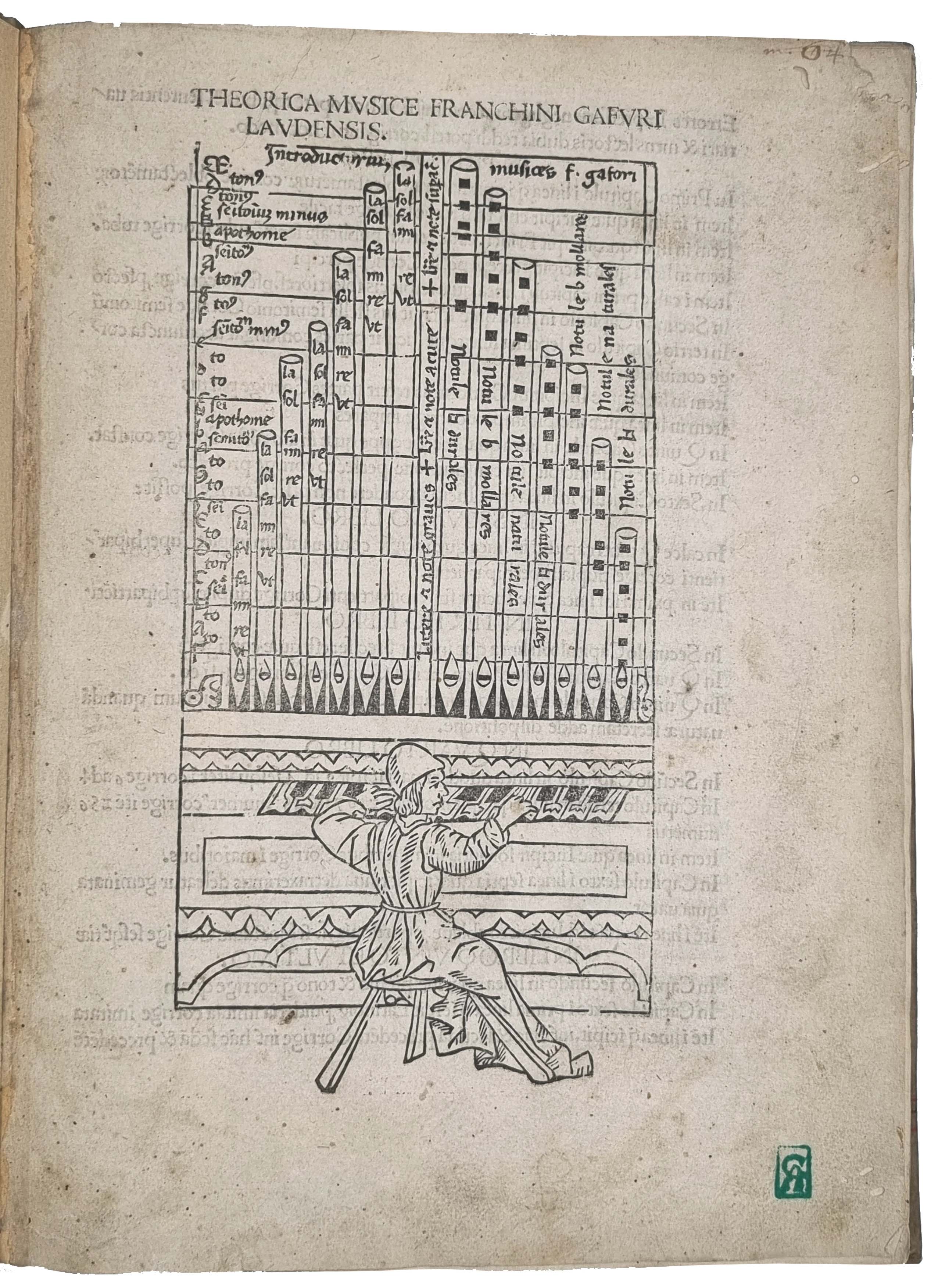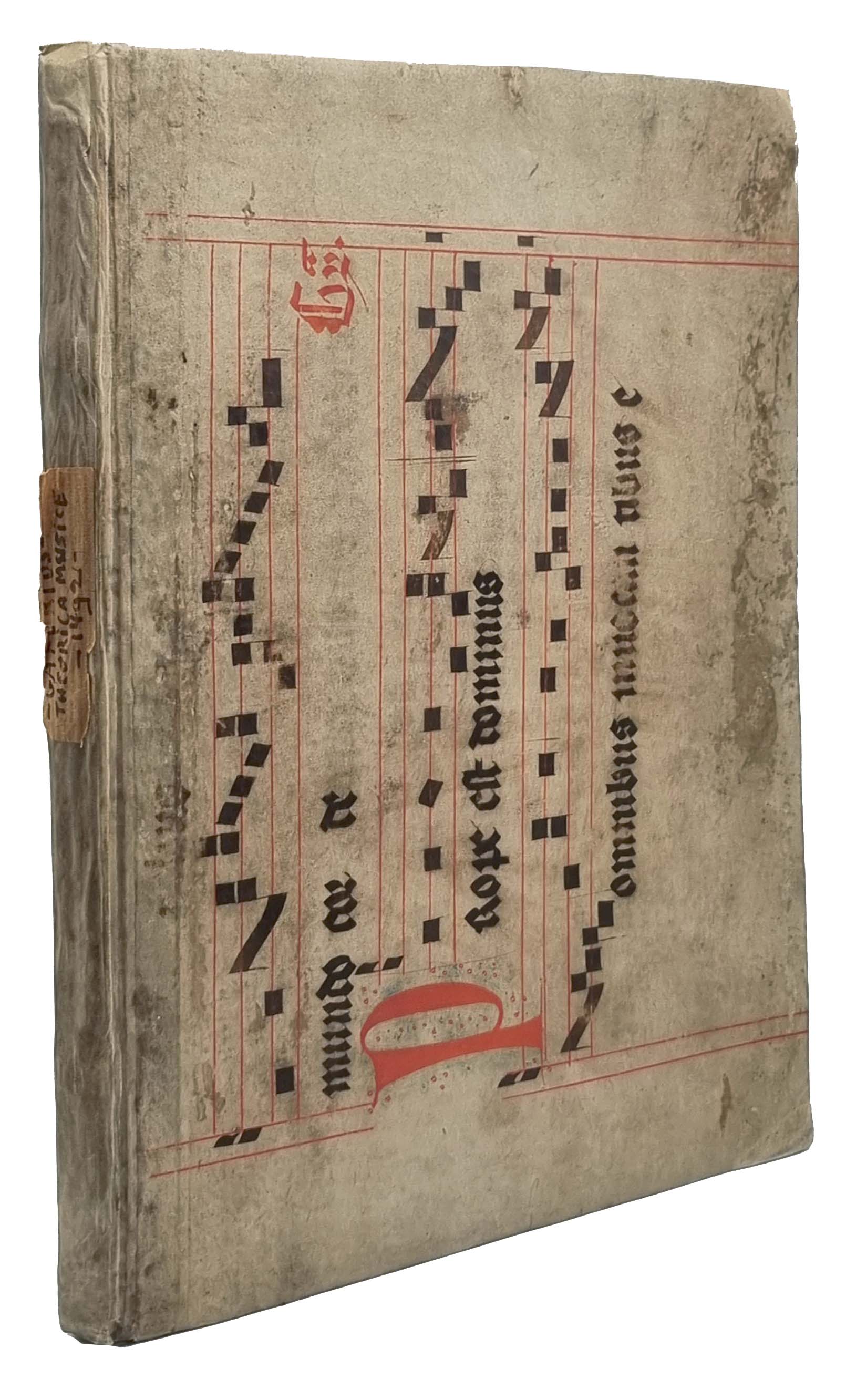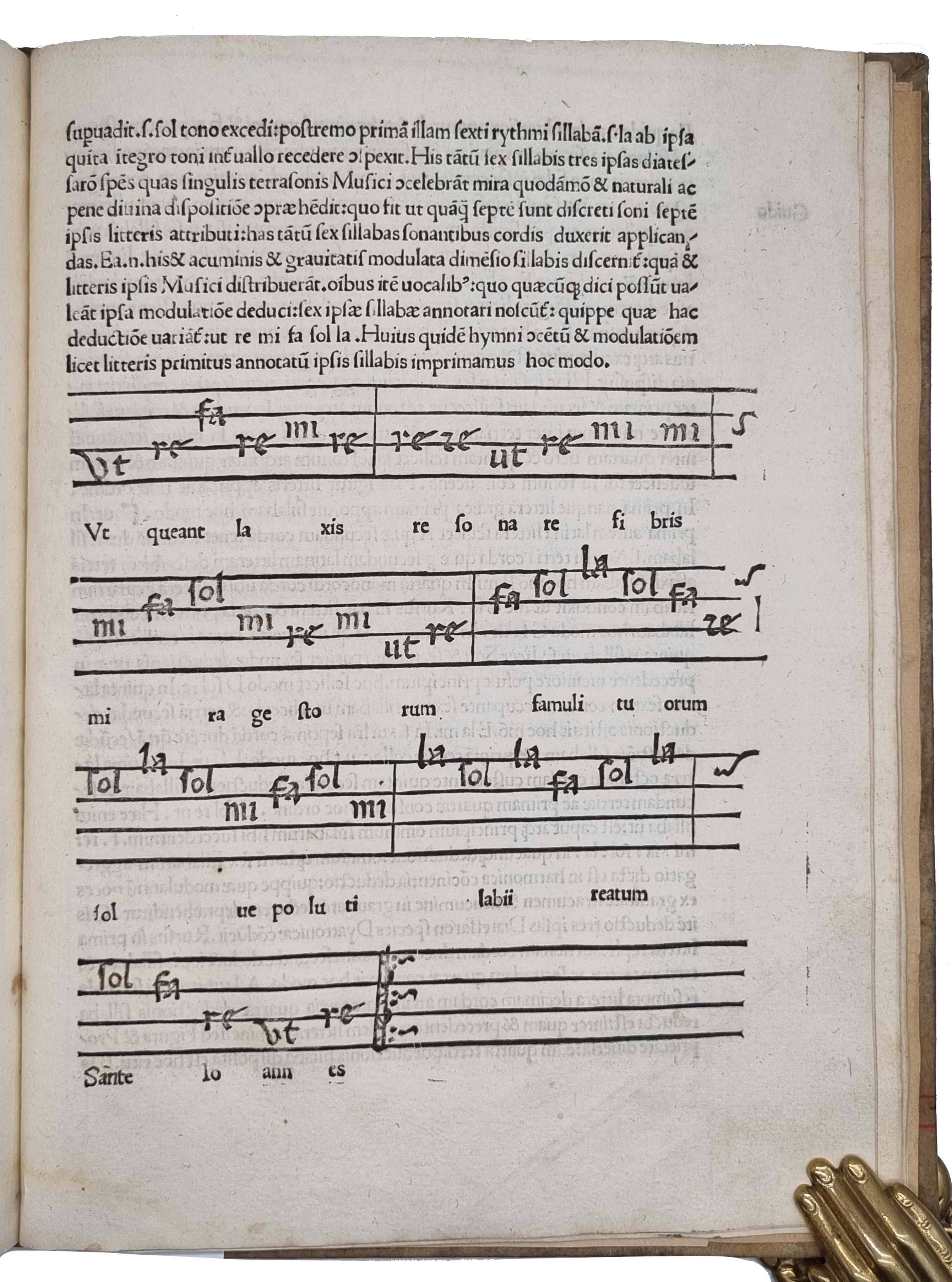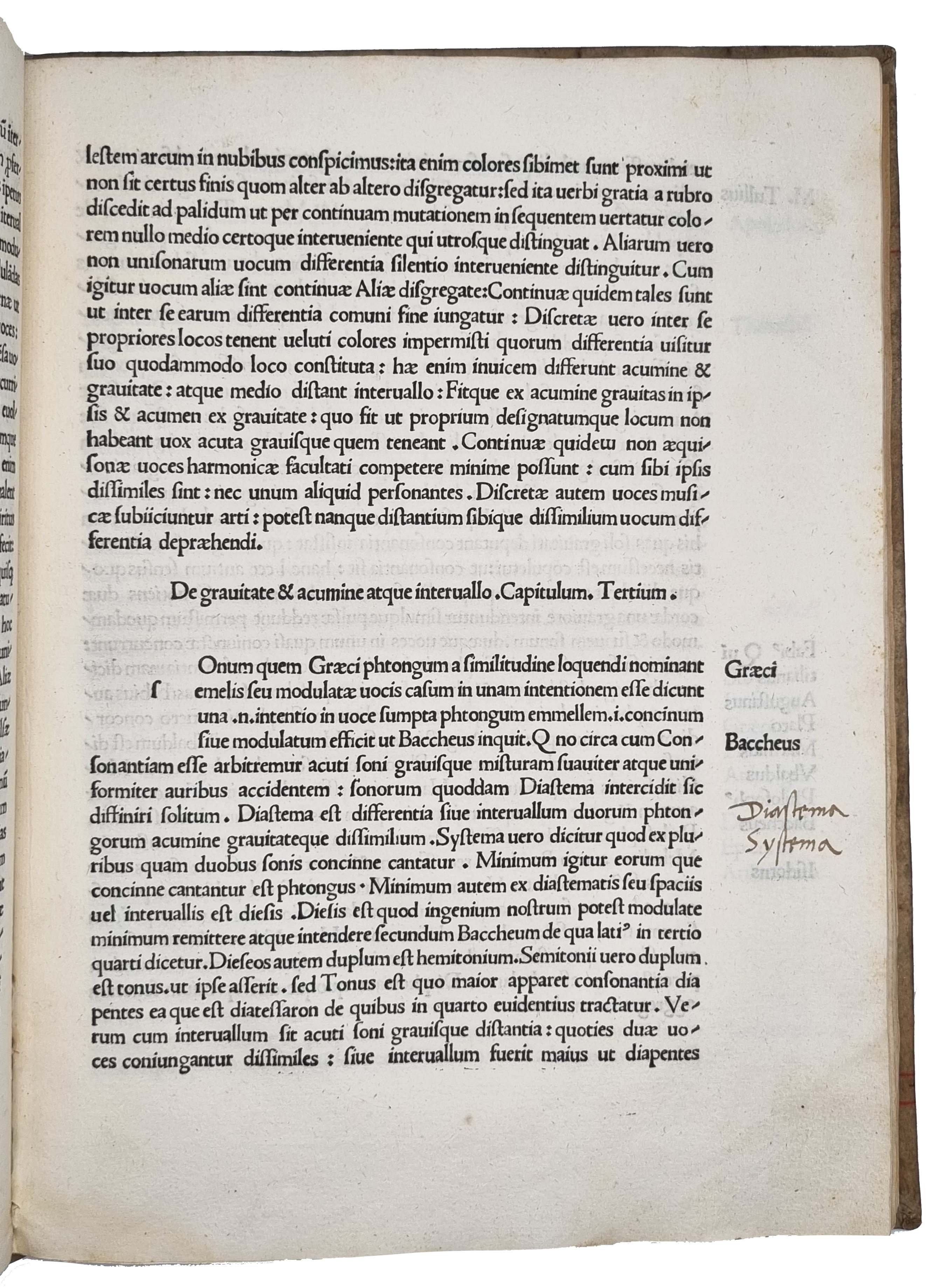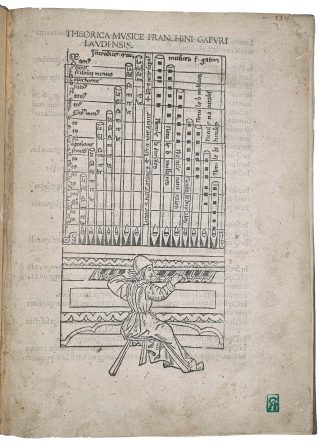GAFURIUS, Franchinus
MUSIC INCUNABULUM
Theorica musice
Milan, Philippus de Mantegatiis, Cassanus, for Johannes Petrus de Lomatio, 15 Dec 1492£75,000.00
Small folio. 68 unnumbered ll., [*]4 a8 b-i6 k8. Roman letter. Handsome woodcut t-p of musician at the organ, full-page woodcut divided into 4 scenes showing Iubal, Pythagoras and Phylolaus playing instruments, several full-page or smaller woodcut diagrams on notation and music theory. T-p and blank verso of last dusty, latter ink spotted, t-p and last two ll. strengthened at gutter, upper outer blank corner slightly holed, few small marginal worm holes to first and last few ll., very light oil stain to lower outer corner of large figurative woodcut, small water stain at lower gutter of last four ll. A very good, crisp copy, on thick paper, in a C14 (probably German) rubricated vellum gradual leaf over boards (C20), a bit dust-stained. C20 bookplate of Alfred Cortot and tiny monogram WH to front pastedown, Cortot’s small initials stamped to lower margin of t-p, the odd C16 annotation and contemporary to verso of final leaf.
A very good copy, of illustrious provenance, of this ground-breaking work for the history of printed music. This second edition was revised and more complete than that of 1480. The t-p displays one of the most famous early music woodcuts, one of the earliest depictions of the organ; the four woodcuts of Pythagoras are ‘the first to portray him as a musician’ (‘History’, 76). Franchinus Gaffurius (Francesco Gaffori, 1451-1522) was an Italian music scholar and composer. A Benedictine monk and priest, he became ‘maestro di cappella’ in the Duomo at Milan in 1484, which hosted one of the most renowned choirs in Europe, patronised by the Sforza family. In addition to writing church compositions for his choir, he also published on the theory and practice of music, and the harmony of instruments. ‘Theoria’ begins with a general section on the benefits of music and the difference between celestial, human and instrumental music. From the second part onwards it is solely devoted to musical mathematics, as at the time music was correctly considered closely related to mathematics and geometry. Gaffori was heavily inspired by the ancient Greek tradition, by which all music intervals are established around set ratios—a system illustrated with woodcut diagrams of proportions. Using the ratios of Pythagoras (himself portrayed in four handsome woodcuts) as well as Greek notation (diapason, diapentes, etc.) as a starting point, Gafurius discusses consonances—with long analyses on the mathematical proportions, their definition, types (including the ‘superparticulares’, containing fractions)—tones and semitones, the invention and disposition of sounds along strings, intervals and the application of syllables to notation. The staffs with letters and notation reproduced at the end were produced with wood blocks, ‘so cut that the lines of the staff and the shapes of the notes stood out in relief, […] locked in the form with the letterpress, and the whole page was easily printed in one impression’ (Kinkeldey, ‘Music’, 100-1).
From the library of Alfred Cortot (1877-1962), famous Franco-Swiss pianist and conductor, especially praised for his interpretations of musical classics of the Romantic era.
Goff G6; Sander 2982; Kristeller 161; BMC VI 785; GW 10437; ISTC ig00006000. D.E. Smith, History of Mathematics (New York, 1958); O. Kinkeldey, ‘Music and Music Printing in Incunabula’, PBSA 26 (1932), 89-118.In stock


